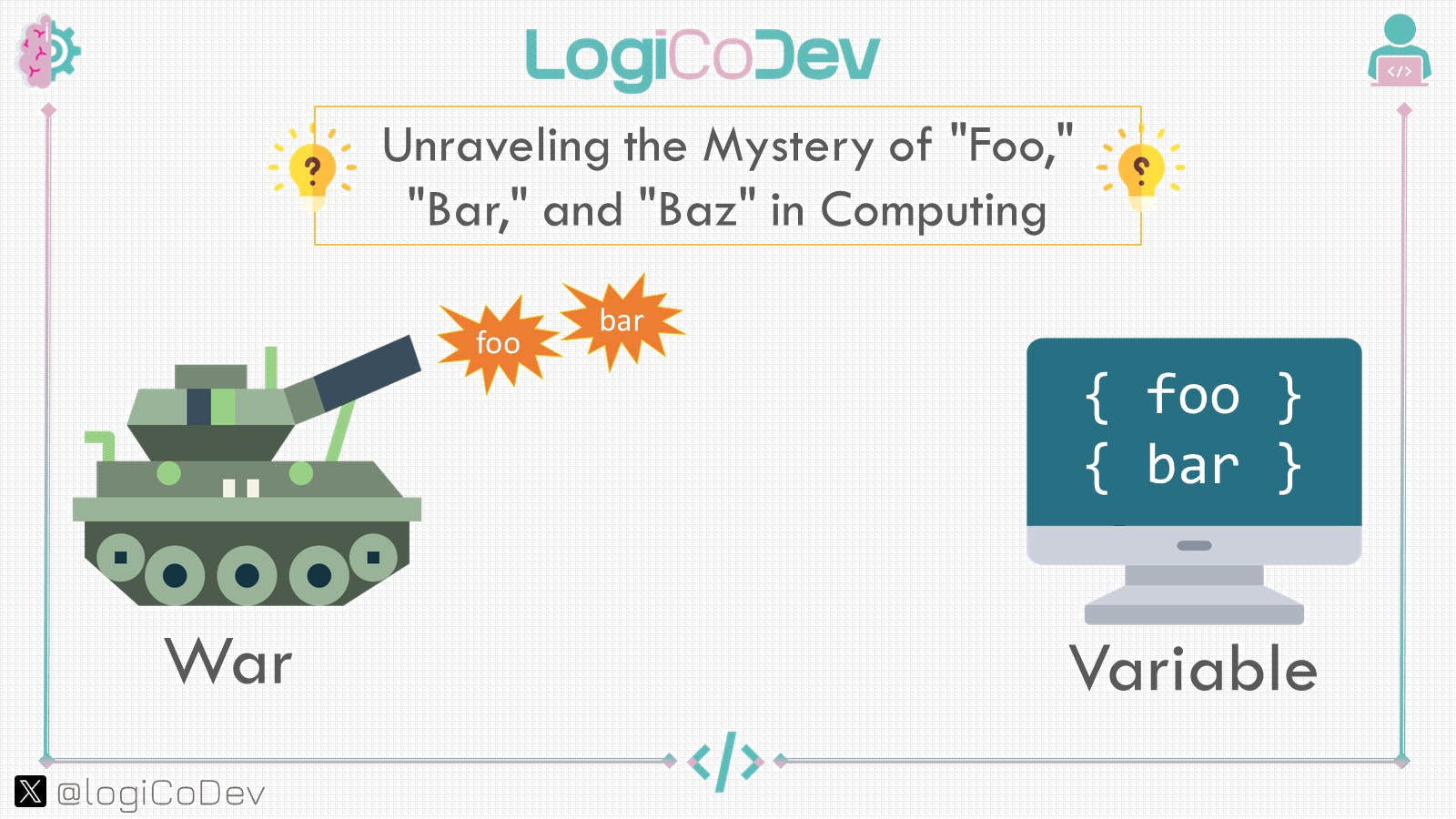🕵️♂️ The Mystery Unveiled: Decoding "Foo," "Bar," and "Baz" in Computing

🤔Ever noticed strange words like "foo" and "bar" in computer talk? They're not just gibberish! These terms pop up everywhere, from command lines to troubleshooting. Let's unravel their origins and meanings.
📜 Exploring Command-Line Curiosities: When you're navigating the world of command-line interfaces, you might have noticed references to "foo" and "bar." These aren't just random words! For instance, commands like "ls foo" and "touch foo" are common. But why? 🧐
🔍 The "Foo" & "Bar" Everywhere: These quirky words are part of a long-standing tradition in programming culture. Imagine finding "foo" and "bar" in places like command examples, man pages, and even troubleshooting scenarios. They're practically everywhere!
📖 The "Man" Page Clue: Even the venerable "man" command itself gives us a hint. In its man page, we spot "foo" and "bar," indicating how ingrained they are in the computing landscape.
🤷♂️ So, where did these odd terms come from? According to the Jargon File, "foo" is a versatile term. It can express disgust or serve as a placeholder for almost anything—like program names or files.
🕵️♂️ The Origin Story: The Jargon File also delves into the possible origins of "foo." It suggests a connection to WWII-era slang, particularly the acronym "FUBAR." Over time, "foo" might have evolved from this, possibly influenced by German "furchtbar," meaning terrible.
🔄 The Metasyntactic World: Additionally, we're introduced to the concept of "metasyntactic variables." These are placeholders used in examples. "Foo" is the prime example, with "bar," "baz," and others following suit. It's like a naming convention to make discussions clearer. 📝
If you're interested in more tech insights, check out my post and consider giving it a follow! 😊👉 Faizan Anwar
